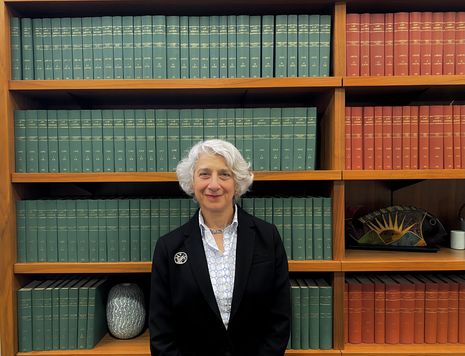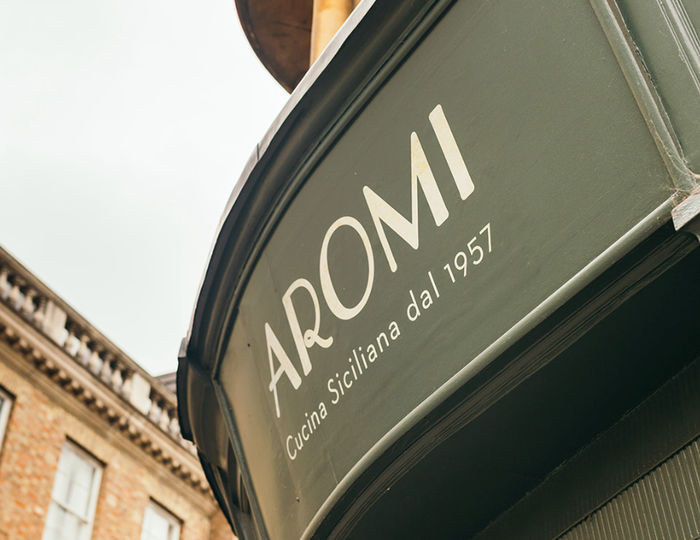Lady Rose on how to become a Supreme Court Justice
Vienna Kwan sits down with Lady Rose to discuss Newnham, overcoming doubts and becoming a Supreme Court Justice

I arrive at the Supreme Court at 4:30pm, the exact time it stops visitor admissions. I panic for a second, explaining that I was here for an interview. Under a pile of papers, the security guard finds a letter with my name. I am there to meet Lady Vivien Judith Rose of Colmworth, or Lady Rose, a Justice of the UK Supreme Court.
Before donning the barrister's robes, she wore the Newnham gown. Newnham, she says, has always been “a very…nurturing place…that inspires great loyalty”. During Lady Rose’s student days, several colleges regularly had rent strikes. Students refused to pay their rent or vacate their rooms in protest at the conference trade. But Newnham students never participated, knowing “the college… needed the money”. Newnham lacked the centuries of financial support from wealthy male alumni available to other colleges.
Her loyalty to Newnham and Cambridge remains to this day: “My first love would always be Cambridge,” but Brasenose College at Oxford, where she completed the Bachelor of Civil Law (BCL), also left its mark. It was during her year there she developed a deep interest in competition law, which later became her specialism. While we laugh about the famed Cambridge-Oxford rivalry, Lady Rose rightly notes that there is more in common than what separates the two.
“My first love would always be Cambridge”
From the outset, Lady Rose was fiercely ambitious. Becoming a barrister was once an “all-consuming” goal. She “did enjoy it for most of the time,” but after 10 years no longer enjoyed the adversarial nature of advocacy. “I didn’t like the confrontational aspect of being in court…I like to be fairly sure of what’s going to happen,” she admits.
Her pivot to public service came when she joined HM Treasury as a legal adviser. She craved variety and the Government Legal Service delivered. Moving “around every few years,” in 2002, she was appointed as Director of Operational and International Humanitarian Law in the Ministry. Yet even then, the idea of becoming a judge was a dream she held on to.
At the time, civil service lawyers were ineligible for judicial appointments. When this was changed, Lady Rose seized the opportunity. However, she was a senior civil service lawyer in the Ministry, “a million miles away from being a suitable jumping off point to being a High Court Judge”. She needed a strategic plan. So, she got to work.
“That was my ambition and I reoriented myself to succeed in that”
Benefiting from “the support of the government legal service,” Lady Rose didn’t simply rely on connections, and was realistic in knowing that she couldn’t make the jump all in one go. From 2005 to 2008, she was seconded to the Office of Counsel to the Speaker of the House of Commons. During this, she took up her first judicial role as Chairman of the Competition Appeal Tribunal. After, she applied “to do other kinds of judicial work,” making connections with High Court Judges and asking if they thought she had a chance to become one.
Her eight-year trajectory provided her with a realistic chance of success. By the time the High Court was looking for a judge with a competition and public law background, she was ready. This wasn’t just luck, but also “a matter of quite strategic planning”.
As a High Court Judge, she made it her business to stay engaged—attending after-work lectures and hangouts, and becoming Secretary of the High Court Judges Association. She showed a willingness not only to decide difficult cases, but to be “quite visible”. By the time she applied to the Court of Appeal in 2019 and the Supreme Court in 2021, she noticed how “this seems to have helped rather than hindered”.
Lady Rose’s ambition as a student only sprouted after graduating. She wouldn’t have “expected to get where I have got to,” but she always believed she was going somewhere. Her younger self fretted a lot about whether she would be “taken seriously” as a female lawyer. Looking back from the bench of the highest court in the country, she would tell her younger self: “You end up as a Justice on the Supreme Court, so don’t worry so much about that.”
Ending on a sentimental note, Lady Rose is a powerful reminder that being ambitious doesn’t always mean having a straightforward path. “You can have a number of different careers,” she insists. It is about “having the courage to jump, if you realise you’re not happy anymore”. You never have to limit yourself to one path.
 News / Deborah Prentice overtaken as highest-paid Russell Group VC2 February 2026
News / Deborah Prentice overtaken as highest-paid Russell Group VC2 February 2026 Fashion / A guide to Cambridge’s second-hand scene2 February 2026
Fashion / A guide to Cambridge’s second-hand scene2 February 2026 News / Downing Bar dodges college takeover31 January 2026
News / Downing Bar dodges college takeover31 January 2026 Comment / College rivalry should not become college snobbery30 January 2026
Comment / College rivalry should not become college snobbery30 January 2026 Lifestyle / Which Cambridge eatery are you?1 February 2026
Lifestyle / Which Cambridge eatery are you?1 February 2026









